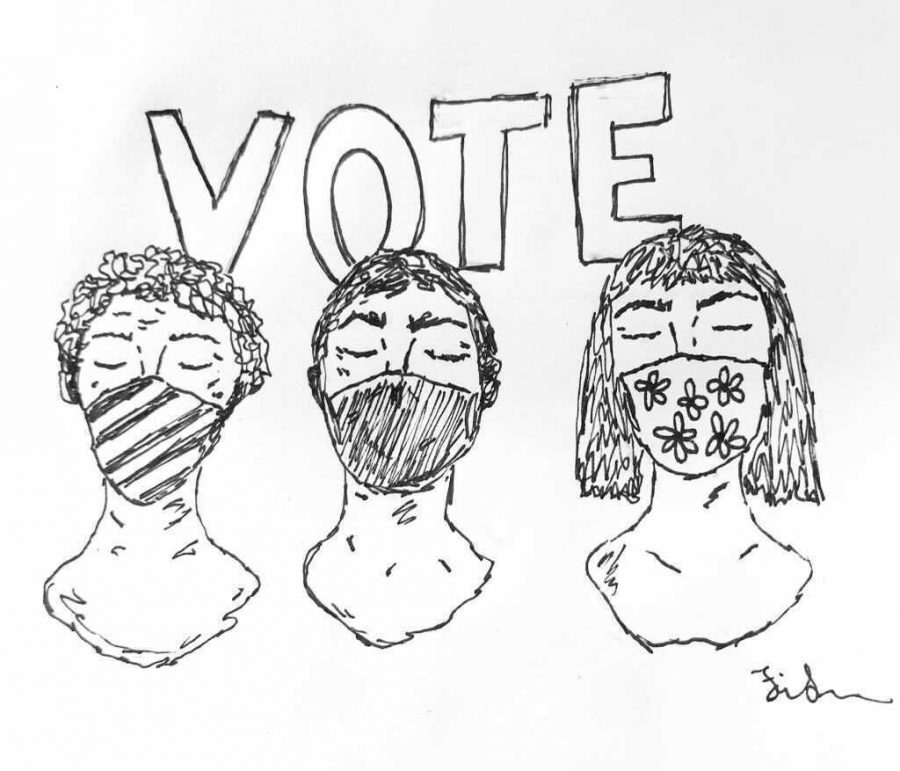Absentee ballots are necessary for the democracy of America
A 64-year-old woman is at risk for contracting COVID-19. She has had asthma since she was a child. If the woman falls ill from the disease, she will likely die, her doctor told her. For the duration of the pandemic, she will stay home unless she has an essential need. Due to her age, she is not yet eligible for an absentee ballot in Indiana. Indiana also requires another excuse beyond COVID-19 concerns to cast a vote by mail. The elderly woman will not be voting this year.
A single father of four works nine hours every day to provide for his children. In order to cast a mail-in ballot in Alabama, one of the requirements is to work 10 hours or more in a day that coincides with polling hours. The father’s work shift does not meet the requirement for an absentee ballot. After work, he will have to tend to his children. He will not be voting this year.
A 26-year-old woman was recently convicted for possession of marijuana. She will spend a year in prison in Kentucky. In the state of Kentucky one may only cast a ballot from prison if you have not yet been convicted of a crime. The woman will not be voting this year.
Many American states still require excuses for mail-in ballots, even during the COVID-19 pandemic. Such prerequisites strain a voter’s ability to cast their vote. Like the people listed above, their circumstances should make them eligible for absentee ballots. Unfortunately, though, they are not.
The American constitution deems voting a right, not a privilege. Anyone eligible to vote, no matter their race, gender, age, or income, should be able to.
The belief that absentee ballots result in voter fraud is a misconception. Although it is possible, voter fraud by mail is extremely rare, according to a New York Times article on the subject.
“…frauds big enough to sway the outcome of an election — those involving campaigns rather than individual voters — will likely be detected,” said Michael McDonald, a political scientist from the University of Florida, according to the New York Times.
Especially during COVID-19, the benefits of mail-in voting far outweigh the disadvantages. During election season, it is vital that anyone who is eligible can vote.
When comparing voter turnout in the 2020 primary elections, states that allow absentee ballots with no excuses had a higher turnout.
Massachusetts does not require an excuse for absentee ballots. However, Indiana and Tennessee do. All three states come very close in population. Yet, the voter turnout in Massachusetts (28.4%) is much larger than Indiana’s (16.3%) or Tennessee’s (13.3%).
Oregon and Louisiana have a similar population size, as Louisiana’s is larger by only 300,000 people. Oregon allows absentee voting with no excuse and Louisiana does not. Oregon’s voter turnout was more than two times as large as Louisiana’s – 30.7% compared to 10.2%, respectively.
Many Americans don’t vote because they feel like their voice doesn’t matter, they are disengaged from politics altogether, or they have a criminal record. Some also shy away from voting because heading to the polls and waiting in long lines is inconvenient.
If voting from home were more easily accessible, the elderly, single parents, and incarcerated citizens would be able to make their voices heard. After all, democracy does not mean some – it means all.

Melissa Auchard, a senior, is in her second year of journalism. When she’s not training for track she likes to spend her time reading, baking, or surfing....







